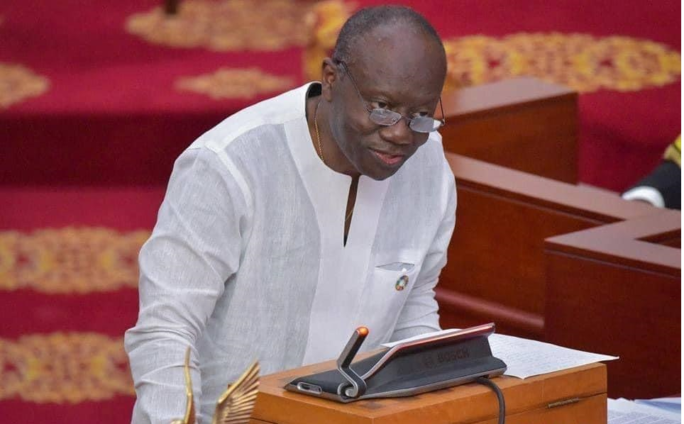The Finance Minister, Ken Ofori-Atta, is set to announce a Mid-Year Budget Review today July 31, 2023, that will outline a comprehensive set of growth strategies, with the overarching objective of promoting greater stability and prosperity for Ghana's economy.
The Mid-Year Budget Review is also expected to help the government undertake critical reforms in the energy and cocoa sectors, towards economic transformation.
Ghana, like many other countries, has been buffeted by exogenous headwinds such as COVID-19 and the war in Ukraine. These external factors have influenced the nation's economic trajectory significantly.
However, through the Mid-Year budget, the government is said to be seeking to tackle these issues and capitalize on opportunities for growth. By adopting effective strategies and policies, the government aims to steer the country's economy towards a positive trajectory.
Notably, the energy and cocoa sectors have been earmarked for transformation in the Mid-Year Budget, as they play pivotal roles in Ghana's economic landscape.
Sources at the Ministry of Finance say the energy and cocoa sector reform agenda, part of a broader Transformation and Growth Agenda, aims to address immediate policy and financing challenges, while propelling the nation towards greater stability and prosperity.
The energy sector reforms are expected to focus on ensuring reliable and efficient energy supply, crucial for industrial growth and the overall economy.
Addressing weaknesses in this sector will attract investments, stimulate economic activities, and pave the way for job creation.
Similarly, the cocoa sector, being one of Ghana's key agricultural exports, is set to undergo significant modernisation to boost production, improve value addition, and increase export earnings, thereby benefiting farmers and communities dependent on cocoa cultivation.
A revitalised cocoa sector can indeed play a pivotal role in driving inclusive growth and poverty reduction.
By targeting these key sectors and implementing strategic reform measures, the government aims to create a conducive environment for private sector-led investments, which can further boost economic growth. The emphasis on sustainable economic growth and development aligns with long-term objectives to improve the overall standard of living and quality of life for the people of Ghana.
It is believed that the “Ghana Mutual Prosperity Dialogue Framework” will serve as a cornerstone of these reforms, promoting shared growth anchored on job creation, exports, and import substitution.
Latest Stories
-
I want to focus more on my education – Chidimma Adetshina quits pageantry
48 mins -
Priest replaced after Sabrina Carpenter shoots music video in his church
1 hour -
Duct-taped banana artwork sells for $6.2m in NYC
1 hour -
Arrest warrants issued for Netanyahu, Gallant and Hamas commander over alleged war crimes
1 hour -
Actors Jonathan Majors and Meagan Good are engaged
1 hour -
Expired rice saga: A ‘best before date’ can be extended – Food and Agriculture Engineer
1 hour -
Why I rejected Range Rover gift from a man – Tiwa Savage
1 hour -
KNUST Engineering College honours Telecel Ghana CEO at Alumni Excellence Awards
2 hours -
Postecoglou backs Bentancur appeal after ‘mistake’
2 hours -
#Manifesto debate: NDC to enact and pass National Climate Law – Prof Klutse
2 hours -
‘Everything a manager could wish for’ – Guardiola signs new deal
3 hours -
TEWU suspends strike after NLC directive, urges swift resolution of grievances
3 hours -
Netflix debuts Grain Media’s explosive film
3 hours -
‘Expired’ rice scandal: FDA is complicit; top officials must be fired – Ablakwa
4 hours -
#TheManifestoDebate: We’ll provide potable water, expand water distribution network – NDC
4 hours

